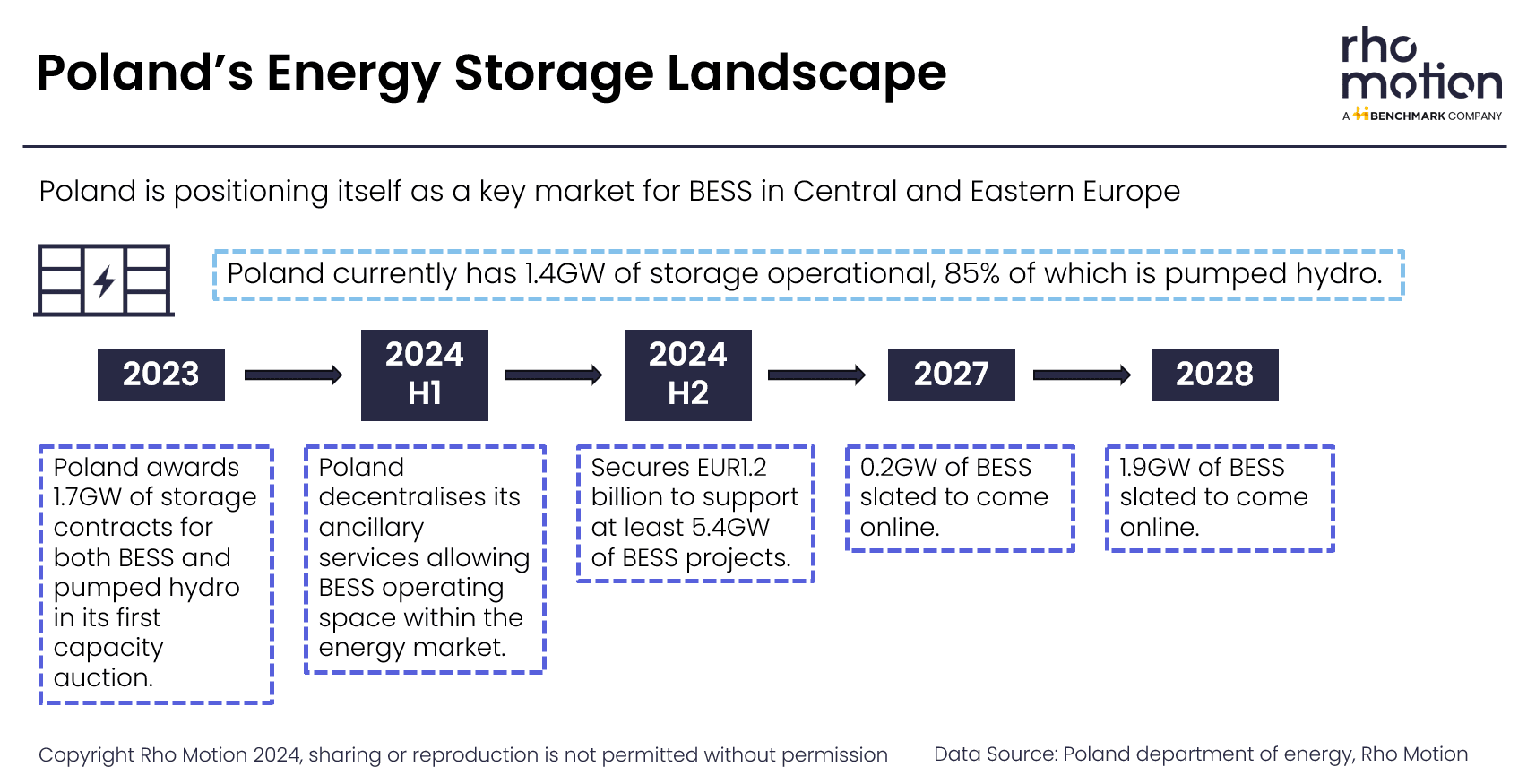The European Commission has approved a EUR1.2 billion aid package to support Poland’s rollout of BESS, aiming to establish at least 5.4 GWh of storage capacity. This significant investment is part of a broader strategy to position Poland as an attractive market for energy storage developers, addressing both the country’s energy transition and its role within the growing storage market in Eastern Europe.
Strong EU backing
The approved scheme offers financial support in the form of grants and loans, covering up to 65% of the capital expenditure for each project. The funding is facilitated through the EU’s Temporary Crisis and Transition Framework (TCTF), a programme launched in response to the economic challenges arising from the Russian invasion of Ukraine. Designed to improve EU member states’ economies, the TCTF aims to accelerate renewable energy deployment, support the decarbonisation of industries, and drive investment in low-carbon technologies with support available until the end of 2025. The Polish aid package will be funded by both the Modernisation Fund and the Recovery and Resilience Facility.

Poland’s electricity landscape
Poland’s energy grid remains heavily dependent on carbon-intensive sources, with around 70% of its electricity generation in 2023 still reliant on coal and gas. However, the country has seen a rapid increase in renewable energy deployment over the past two years, which has also led to growing demand for energy storage solutions.
Rho Motion BESS analyst, Pete Tillotson commented, “The storage market in Poland remains in its early stages. However, the country’s first capacity auction in 2023, awarding 1.7 GW of storage contracts, has set the foundation for future growth.” He further highlighted that Poland is emerging as a key player in driving the energy storage market in Central and Eastern Europe.
Currently, Poland has a total installed storage capacity of 1.4 GW, 85% of which comes from pumped hydro storage facilities. Looking ahead, 2.1 GW of BESS capacity is slated to come online by 2028.
Read: Brazil announces its first battery storage auction
Government funding and the energy storage market
Government funding, through grants and loans, has been crucial to the development of the energy storage sector and the broader energy transition. The high capital expenditure and uncertain returns associated with energy storage projects have made private investors cautious, underlining the importance of public financial support to reduce risk and attract investment. Across Europe, countries such as Greece, Italy, Germany, and the UK have implemented government-backed schemes to support their BESS industries, a trend that is mirrored globally in other regions such as Australia, China, and Japan.
Read: UK’s sixth contracts for difference energy auction proves successful, a positive for the storage industry
Energy market reforms key for BESS development
Beyond financial incentives, energy market reform plays a pivotal role in securing stable revenue streams for energy storage providers, giving investors the confidence to engage with the sector. Poland has made significant reforms to its electricity market this year, decentralising balancing markets, ancillary services, promoting increased involvement of battery storage in the capacity market.
More information
For information about ESS, or battery markets see our research or get in touch.

 Back to News
Back to News